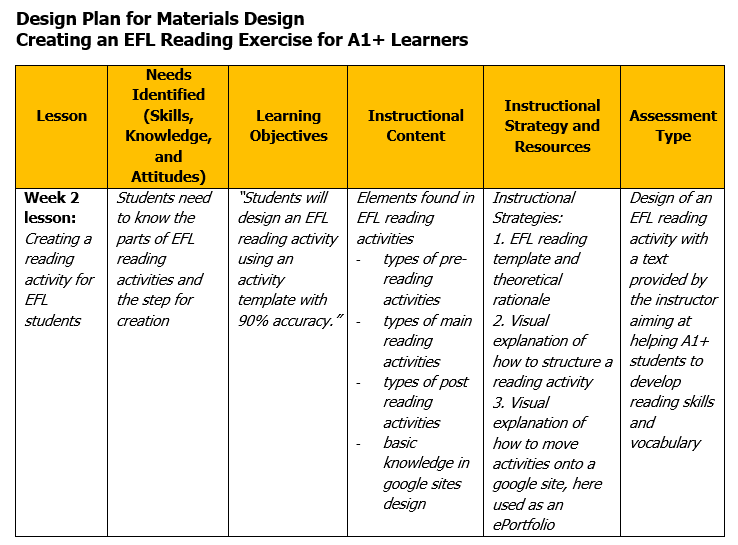Action Plans
in Design:
The ADDIE
Model in Action
By Prof.
Jonathan Acuña Solano
Wednesday,
April 29, 2015
Twitter:
@jonacuso
Post 157
Introduction:
An Action Plan is a set of steps or
guidelines created to address particular tasks. In instructional design, Action
Plans often are used for a number of tasks such as determining the steps for
developing an instructional resource. In an online environment, developing
instructional resources can become more complex. Thus, creating an Action Plan
to manage development resources and plan for contingencies can assist you in
finding the best balance of media and resources for your course.
The Actual Plan:
Moving
towards the next step, from the Design Plan to the Action Plan, needs careful
planning to avoid all sorts of mishaps. As pointed out below, from the lesson
topic or theme to the way the instructor is going to assess learners, several
steps need to be carefully thought to guarantee success.
The
following chart presents the steps to follow with a simple example of the
creation of a reading exercise for students whose CEF level is A1+.
Click to enlarge image.
As
shown here, this action plan does include several steps that need to be
finished prior my online course is ready for kickoff. Due to time constraints
and my independent way of working, I would try to work most of this myself to
mitigate delays in course media and material production. The one single problem
with depending on others is the fact that things may not be ready when
promised, or there can be something else that was not really asked for.
Click to enlarge images!
Since
I have been developing hybrid and blended courses empirically for my university
students, the most important recommendation I can give is that instructors must
feel confident in the use of software to produce media for the course. In the
case of the members of the IT Department, the simplest suggestion I can provide
is, beware of what is being understood by other team members, since the result
may not be what you thought of. That is,
teachers must either self-train themselves or request that training from the
university. But it has been my experience that at times, when you need things
to be done timely, you should be prepared to do it yourself at your own pace.











I'm certainly very happy to read this blog site posts which carries plenty of helpful data regarding Instructional Design ADDIE, thanks for providing such information.